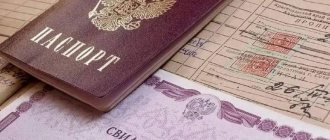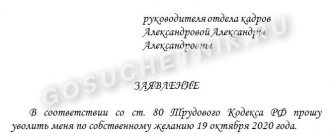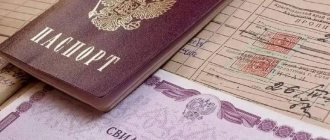Article 349.6 was introduced into the Labor Code of the Russian Federation by Federal Law No. 109-FZ dated April 30, 2021, which comes into force on July 1, 2021. Civil servants are prohibited from having dual citizenship or residence permits. The ban applies to positions that require access to state secrets.
Moreover, starting from July 1, 2021, state and municipal employees are required to notify their management of the loss of Russian citizenship or the acquisition of citizenship or a residence permit of another country.
Is it allowed to have dual citizenship in Russia?
Dual citizenship is the right of any Russian, which is enshrined in the Constitution of the Russian Federation, Federal Law No. 62 “On Citizenship of the Russian Federation” and international treaties of our country.
Until the end of November 1991, citizens of our country could not purchase a passport from another country. Everything changed with the advent of Law of the Russian Federation No. 1948−1 “On Citizenship of the Russian Federation,” which is the predecessor of the current Federal Law.
This regulatory act not only allowed Russians to acquire citizenship of other countries, but also foreigners to become part of our state. At that time, there was a condition: renunciation of citizenship of one’s country. The exception was the presence of an international treaty with the Russian Federation.
Since then, many changes have occurred, which were associated, in particular, with the adoption of the Constitution of the Russian Federation.
What does the Constitution of the Russian Federation say?
The right to dual or two citizenships is regulated by the Basic Law of the Russian Federation - the Constitution. Article 62 sets out the following conditions:
- it is carried out on the basis of Federal Law No. 62 or an international treaty with the state whose citizenship the Russian wants to obtain;
- the obligation of a citizen of the Russian Federation to continue to comply with its legislation (bipatridity with the Republic of Tajikistan has its own characteristics, which will be discussed below).
A person wishing to obtain citizenship of another country must keep in mind that certain types of rights in the Russian Federation will then be unavailable to him:
- entry into the civil service;
- use of passive suffrage (to be elected to legislative bodies of state power or local self-government).
Important! Permanent residence of a binational person or members of his family abroad may serve as a basis for refusal of access to state secrets.
Federal Law “On Citizenship of the Russian Federation”
This act was adopted to replace the expired Law of the Russian Federation No. 1948−1. The legal status of dual citizenship is regulated by Art. 6 and has the following features:
- a Russian is considered by the Russian Federation only as its citizen, regardless of the presence of other citizenship (with the exception of a Tajik passport);
- acquisition of citizenship in another country does not entail its termination in the Russian Federation;
- the citizen undertakes to submit a written application to the Federal Migration Service of the Russian Federation for its acquisition.
In accordance with Art. 7 Russians who are in a country of which they also have citizenship are provided with protection and patronage by the Russian Federation.
They are carried out by diplomatic missions (Embassies and Consulates of the Russian Federation) located in most states.
Russian Federation agreements on dual citizenship
As of 2021, there is only one bilateral treaty on dual citizenship.
In September 1995, an agreement was concluded between the Russian Federation and the Republic of Tajikistan on the settlement of issues of dual citizenship.
This agreement is valid for 5 years and is automatically extended for the same period if neither party expresses a desire to terminate its existence within six months.
This situation occurred with a similar agreement between the Russian Federation and Turkmenistan in 2015.
The agreement with Tajikistan regulates many important provisions, for example:
- military service is performed only in the state in which the person primarily resides;
- persons who have already served in one of the states are no longer subject to conscription;
- medical care, social provision and education are also carried out on the terms of the country of primary residence.
There are no similar agreements with a number of other states, however, there is a multilateral agreement on a simplified procedure for obtaining citizenship between the Russian Federation and the Republics of Belarus, Kazakhstan and the Kyrgyz Republic (dated 02/26/1999).
This agreement applies only if there are no contradictions with the Treaty on the Eurasian Economic Union of 2014.
Important! In these states there is no concept of bipatridity.
In most cases, a renunciation of Russian citizenship will be required.
What is the maximum number of citizenships a person from Ukraine can have?
In Ukraine, as of 2021, dual citizenship is prohibited. However, last year the Ukrainian government began working on introducing it into legislation. Before this, for almost three decades, the state of Ukraine was opposed to its citizens having passports from other countries.
Thanks to the expected changes in legislation, the Ukrainian state will not only develop tolerance towards bipatrids who live both within the country and abroad. Descendants of Ukrainian migrants will be able to obtain full Ukrainian citizenship without giving up their own.
Today there are several million so-called foreign Ukrainians in the world. They are called citizens of other states, or stateless persons who have Ukrainian ethnic roots and come from Ukraine. So far, such foreigners only have benefits for obtaining a residence permit in Ukraine and for entering a Ukrainian university.
There are enough opponents of bipatrism in Ukraine. They believe that dual citizenship will stimulate separatism, because of which the state has already suffered. Moreover, the Russian Federation has begun distributing its passports to residents of ORDLO in eastern Ukraine. In Transcarpathia, the number of Hungarian citizens among the Ukrainian population is actively increasing, since official Budapest also issues its passports. Romania is pursuing the same policy in the lands of Bukovina and Bessarabia.
Currently, hundreds of thousands of Ukrainians have second and third passports. It is they who advocate in Ukrainian society for the introduction of dual citizenship into legislation. Ukrainian billionaire Igor Kolomoisky openly states that he has Ukrainian, Cypriot and Israeli citizenship.
According to statistics, every year about 100,000 Ukrainians become citizens of other countries. However, as a rule, they do not refuse a Ukrainian passport and keep it with them.
Ukrainian legislation has many internal contradictions. In fact, there is no rule in it that would directly prohibit second citizenship. Therefore, Ukrainians can have an unlimited number of citizenships.
Also, Ukrainian legislation allows naturalized Ukrainian citizens to retain other foreign passports on an indefinite basis.
Differences between second citizenship and dual citizenship
Despite the existence of only a bilateral agreement with Tajikistan, Russians have the right to have passports from other states, but within the framework of two citizenships, not dual ones. These terms are often confused, but there are significant differences between them.
Important! The multilateral agreement discussed above only simplifies the procedure for obtaining citizenship, but from a legal point of view, a citizen of Russia and, for example, Belarus will have two citizenships, not dual ones.
Double citizenship
Persons who are both a citizen of Russia and a national of the country with which it has an agreement on dual citizenship are called bipatrids.
The main advantage of bipatrimony is:
- Exemption from the obligations of one country in cases where the binational person lives most of the time in another state. For example, a Russian who has received a Tajikistan passport and primarily resides there is exempt from paying Russian taxes, from the obligation to undergo military service on the territory of the Russian Federation, etc. These and similar legal obligations will arise for him at his new place of residence, i.e., in Republic of Tajikistan.
- Children of a binational person acquire dual citizenship from birth. Parents are also given the right, before the child reaches adulthood, to choose one of the citizenships for him, refusing the second (in writing), or to leave everything unchanged.
- Both states have the right to protect binational citizens. A citizen is free to choose whom to turn to for help.
- Maintaining benefits on the territory of both states, regardless of primary residence in one country.
Second or dual citizenship
In cases where there is no agreement on dual citizenship between the Russian Federation and another state, we are talking about obtaining a second passport.
The status of a second citizenship does not provide the same privileges that a bipatriate could receive. In addition, a person who is a citizen of Russia and another country at the same time (for example, the United States) undertakes to comply with the laws of both countries.
The difficulty is that the legislation of states is different. Due to this, a conflict of law arises - a contradiction between regulations governing the same industry in two countries.
Why are more and more people choosing a second citizenship?
In the new century, the ability to freely choose the best place to live, work or relax has become an urgent need for any person who keeps up with the times. A second passport or resident card of another country is usually issued for several reasons.
- More comfortable living conditions In the UK and the countries of continental Europe there is an incomparably higher level of comfort and safety of life. With a European passport, you can no longer think about the political and economic crises that are shaking the entire country. You will have access to quality medicine and modern education, an eventful cultural life and historical monuments that you could previously only read about in books.
- Security and “Plan B” in case of troubles Fortunately, in Russia, Ukraine and Kazakhstan there is no practice of issuing exit visas, so a holder of dual citizenship or a resident card can literally find himself in another country within a few hours, if in his homeland he or his loved ones will be in danger. Contrary to the assurances of television propagandists, in most countries of the European Union the level of street crime remains extremely low. In some European cities, residents calmly let their children go to school alone, do not lock their cars or chain their bicycles at the entrance to the store.
- Business opportunities The governments of civilized countries are doing everything in their power to ensure that small and medium-sized businesses develop. Entrepreneurs are provided with government support, tax benefits are provided, but most importantly, in Europe, as a rule, interaction between private companies and regulatory authorities is reduced to a reasonable minimum, and the rules for doing business are as transparent as possible. An additional advantage is the absence of grassroots corruption and the independence of the judicial system.
- Tax optimization Dual citizenship allows you to significantly save on taxes, since the holder of several passports is free to choose in which jurisdiction he will be a tax resident and what legal ways to reduce the fiscal burden he should use. For example, in some Caribbean countries, residents do not pay several basic taxes, including income tax, and in the Republic of Cyprus, real estate is not taxed.
- Access to reliable financial institutions For those who have obtained a second citizenship, it is much easier to open an account in one of the banks in Europe or Switzerland. Since the economies of developed countries are strong enough not to collapse like a house of cards under the blows of the next financial crisis, you are guaranteed to preserve and increase your personal savings.
- Complete freedom to travel and live Dual citizenship usually provides more opportunities for visa-free visits to other countries. A passport from a country belonging to the European Union allows you to freely visit about 150 jurisdictions around the world. Moreover, EU citizens have the right to live freely in any state that is part of this association. It is currently quite difficult to become a citizen of France or Germany, but this will not prevent the holder of a Maltese or Cypriot passport from settling in one of these countries.
- A bright future for children By issuing passports for the whole family, you will ensure a bright future for your children. After all, England and the countries of Western Europe can rightfully be proud of their system of school and university education. In universities and colleges with a centuries-old history, your children will receive a modern, high-quality education, which will allow them to become a successful entrepreneur or make a career in one of the large international companies.
Pros and cons of second citizenship
The undoubted advantages of obtaining a second passport include:
- visa-free regime when traveling between the Russian Federation and the country of second citizenship;
- the full scope of rights of a citizen of the country whose passport was received;
- when acquiring citizenship of some states, there is no need to pay taxes both there and in Russia (for example, under the Treaty between the Russian Federation and the United States of June 17, 1992 “On the avoidance of double taxation and the prevention of tax evasion with respect to taxes on income and capital”;
- Having a passport from some states opens up a visa-free regime for visiting others (for example, you can enter the EU countries using the citizenship of one of the participating countries, most other European countries, Brazil, the USA, Japan, South Korea, etc.);
- preferential opportunity to become a citizen of a third country (Brazilians can obtain a Portuguese passport using a simplified system);
- the level of medical care in many countries is really high (Israel, Sweden, Japan, Italy, Switzerland).
Despite the large number of advantages, problems may arise with the acquisition of a second citizenship. These and other disadvantages include:
- double the volume of tax obligations (in the absence of an agreement similar to the agreement between the Russian Federation and the United States);
- double military obligations (if in the United States military service is carried out under a contract, then in Israel all citizens without exception serve, despite reserving in Russia);
- children of a citizen of two states receive only one citizenship (depending on the legislation of the country), which may cause difficulties in returning to our country with him;
- some states do not recognize multiple citizenships, and to obtain it you will have to renounce one in the Russian Federation (Germany);
- in most countries, senior government positions. Bodies can only be held by indigenous citizens.
What risks do persons with second citizenship bear?
If a Russian with a second passport permanently resides in the country, this will not in any way affect his guarantees under Russian law. But Russians with a second citizenship will not be able to get some government jobs, for example, get a job in the FSB, the prosecutor's office, become a judge or a voting member of an election commission.
It is strictly prohibited for persons with a second citizenship:
- Enter the public service (except for situations where this is provided for by an international treaty).
- Establish a media outlet or participate in its formation.
- Collaborate with media editorial staff.
- Become the owner of more than 20% of the shares of the media.
- Serve as a member of the Public Chamber.
- Be a deputy of the State Duma.
What other problems might there be with second citizenship? For example, citizens who permanently live outside the Russian Federation are exempt from military service, while in order to retain Turkish citizenship they must undergo military service.
Difficulties may arise when obtaining citizenship in a Muslim country where polygamy is recognized, while polygamy is not recognized on the territory of the Russian Federation.
Will such a person have a pension?
The pension issue must be resolved depending on the country of residence and the existence of a pension agreement between the Russian Federation and the country where the person has a second citizenship. Pension agreements can be structured on a territorial basis. These are, for example, agreements between the Russian Federation and Armenia, Belarus, Ukraine, Kazakhstan, Georgia or on the principle of proportionality. In the latter case, it is taken into account how long the person worked in a particular country. The Russian Federation has such agreements with Spain, Bulgaria and Estonia.
If a Russian with a second citizenship permanently resides and is registered in the Russian Federation, he receives a pension as usual and does not bear additional risks.
According to the agreement, which is based on the territorial principle, a Russian with a second citizenship can count on receiving a pension only under the laws of the state of permanent residence. If the agreement has the principle of proportionality, then, as a general rule, each state assigns a pension according to its own laws. Work experience in each country also matters.
In the absence of a pension agreement with the country of second citizenship, a citizen has the right to apply for a pension in the Russian Federation, but only subject to compliance with mandatory conditions: the presence of insurance coverage, reaching retirement age, etc. The application for a pension is submitted to the Pension Fund.
Will the benefits continue?
All benefits and social guarantees provided for by Russian legislation are provided to a citizen on a general basis under the conditions of permanent registration in the Russian Federation. For example, having multiple citizenships does not affect the amount of subsidies for housing and communal services or benefits for major repairs.
Who can receive
The circle of persons for whom it is possible to obtain a second passport is determined by the state itself, whose citizenship is desired.
Thus, EU countries provide the opportunity to obtain citizenship of one of the countries to the following persons:
- Repatriates are persons who are descendants of citizens of this state who emigrated earlier.
- Spouse of a citizen.
- Other relatives of citizens, for the purpose of family reunification.
- Refugees (it is important to note that not every one of them can subsequently obtain a state passport).
- Persons who have been working under an employment contract for a long time, or who have opened their own business in the country.
Important! Before you can get a passport, you will first have to obtain a temporary and then a permanent residence permit.
Which citizenship is better to invest in if you are not going to move anywhere?
If you do not plan to leave your homeland for a long time, but you need an inexpensive passport for visa-free travel, pay attention to the investment programs of the former British colonies in the Caribbean.
As a rule, participation in them does not require huge investments, and the possibilities of such citizenship for moving around the planet are comparable to the possibilities of European passports. An additional advantage will be the remote nature of most Caribbean programs and record-breaking passport processing times, allowing you to obtain a second citizenship in literally 5-7 months without leaving home.
#residence permit
#Citizenship
#European passport
#Caribbean passport
How to obtain: rules for notification and registration with the FMS
Most states require a future citizen to obtain permanent residence and live in the territory for a certain amount of time (from 5 to 10 years, in some cases and countries the period is shorter). In addition, a Russian must:
- know the official language of the country in which he wishes to obtain a passport, and pass a special exam for his knowledge;
- know basic legislation;
- during permanent or temporary residence, show yourself on the good side, not break the laws.
Obtaining a second citizenship is not limited to just one party. The Russian must notify the migration service at his place of residence in the Russian Federation that he has received a second passport.
Important! It is necessary to notify the migration service not only when obtaining another citizenship, but also a residence permit or in another way of staying for a long time in the territory of another country (Part 2 of Article 62 of the Federal Law “On Citizenship of the Russian Federation”).
Submitting a notification to the FMS
The notice must be in writing and may be submitted:
- personally a citizen of two states;
- with the help of a representative executed under a power of attorney;
- through the State Services portal or the website of the Ministry of Internal Affairs of the Russian Federation.
- postal service.
When transferring by post, certain conditions must be met:
- the notification is certified by a notary (to do this, you must contact the nearest consular district located on the territory of the state in which citizenship was acquired, since the Consulate of the Russian Federation also performs the functions of a notary);
- the person giving such notice must produce proof of identity.
The notification itself must include the following information:
- personal data (full name, date and place of birth);
- place of residence or actual location at the moment;
- information about the Russian passport (series and number);
- information about the passport of a foreign state (series, number and date of issue of the passport);
- the grounds for acquiring citizenship and the date of its receipt.
In addition, you will need to attach a number of documents:
- a copy of a foreign passport;
- a copy of the passport of our state;
- The representative (if the submission is made by him) will also need a copy of the passport and a notarized power of attorney.
The FMS branch is selected based on the citizen’s registration using a Russian passport or his last place of residence before emigrating to another state.
Notice Submitted by Minors
For a minor (from 14 to 18 years old), notification is submitted by his legal representative - one of the parents (adoptive parents) or a guardian. It provides the following information:
- personal and passport information about yourself;
- personal and passport data of the Russian Federation about a minor;
- the grounds for the acquisition of citizenship by such a person and information about the identity document confirming citizenship;
- signature of the representative and its transcript.
Attached to the notice:
- a copy of the passport of the Russian Federation and (if any) a foreign country representative of the minor;
- a document confirming the right of a legal representative (birth (adoption) certificate or act of appointment of a trustee);
- a copy of the minor’s Russian passport;
- a document confirming citizenship of a foreign state;
- documents about the representative in the Russian Federation (if the notification is transmitted through him) are similar to those attached to the application of an adult citizen.
Notice given by minors
For a minor (child under 14 years of age), notification is also submitted by his legal representative (parent, adoptive parent or guardian). The form itself contains similar information, with the exception of passport information.
Until the age of 14, the identity document is a birth certificate.
Submission deadlines
Article 6 of Federal Law No. 62 establishes the following deadlines:
- on a general basis (when living in a foreign country) - within 60 days;
- if obtaining citizenship is followed by a return (permanent or temporary) to the Russian Federation - 30 days from the date of arrival.
Fines and other penalties for failure to notify
In case of untimely submission of information about the availability of a second passport, a citizen of the Russian Federation will face administrative liability under Art. 19.8.3 Code of Administrative Offenses of the Russian Federation. This article also includes:
- incomplete information;
- false information.
Responsibility comes in the form of a fine from 500 to 1 thousand rubles.
More serious measures will be applied to those persons who hide their citizenship of a foreign state. In this case, liability arises under Art. 330.2 of the Criminal Code of the Russian Federation and threatens the violator:
- a fine of up to 200 thousand rubles (or in the amount of annual income);
- compulsory work - up to 400 hours.
List of countries with which second citizenship is allowed and prohibited
The law allows for second citizenship in Russia, but with which countries is this really possible? Although the processes of distribution and redistribution of the Earth's population do not stand still, many states are ardent opponents of dual status. Each country has many nuances regarding obtaining citizenship.
Where allowed
The list of states recognizing the human right to obtain an additional passport in 2021 is small:
- Russia
- Spain
- Australia
- Switzerland
- Ireland
- Jamaica
- Israel
- Italy
- Greece
- Lithuania
- Latvia
- Türkiye
- Brazil
- Argentina
- Chile
- Dominican Republic
- Norway
European countries have a very strict policy regarding dual status. There are many conditions for its registration. For example, Spain recognizes the right to second citizenship exclusively for residents of Portugal, Latin America and the Philippines. The remaining applicants must renounce their previous commitments. Montenegro allows, as an exception, those people who received its passport for investment through the purchase of real estate not to refuse a Russian passport. Some European countries want to remove permission for second citizenship from legislation. In Switzerland, debate on this issue has been going on for several years.
Citizenship by Investment
Some countries allow you to obtain citizenship by investment. Such states include:
- Malta
- Cyprus
- Montenegro
- Austria
- Türkiye
- Saint Kitts and Nevis
- Dominica
- Grenada
- Saint Lucia
- Vanuatu
- Antigua and Barbuda
- Cambodia
- Jordan
A citizen’s investment should range from $100 thousand in small Caribbean countries to €6 million in Austria.
In some Caribbean countries, citizenship by investment can even be obtained online. Thus, you can become a citizen of Saint Kitts and Nevis if you invest from 300 to 500 thousand dollars in this state. Moreover, this money is enough to obtain citizenship for the whole family. Cyprus legislation allows the granting of citizenship to a foreign citizen in exchange for an investment of €2 million. In Malta, it is enough to invest 880 thousand €. In Montenegro, a country passport will be issued in exchange for a deposit or purchase of real estate from €250 thousand. The minimum investment amount increases if a person wants to purchase housing in resort areas near the sea.
In total, as of 2021, there are 15 countries whose legislation allows you to obtain a residence permit or citizenship by investment.
Where you can’t get a second citizenship
The attitude towards multiple citizenship is not so friendly everywhere; in some countries, it is prohibited at the legislative level to have a second passport. Some countries do this for reasons of security and prosperity, while others care about preserving national characteristics and traditions. Most often, such prohibitions exist in states with monarchy or socialism.
In 2021, there is still no legal permission for second or dual citizenship in the following countries:
- South Korea
- North Korea
- Denmark
- Japan
- Sweden
- Kazakhstan
- China
- Azerbaijan
- Austria
- India
- Germany
- Thailand
- Macau
- Cambodia
- Vietnam
- Indonesia
- Ukraine
- Belarus
- Azerbaijan
- UAE
- Kuwait
- Qatar
Although the Russian Federation actively interacts with these countries, unfortunately, it is almost impossible for its citizens to get a second one here due to the domestic ban. In some cases, this is still possible, for example, if the authorities are interested in attracting a prominent Russian scientist or artist.
There are exceptional circumstances when the ban is lifted. For example, Austria allows its citizens to join the ranks, but only if the interested person makes a significant contribution to the development of science or culture.
Is it possible for a Russian to have a second passport?
So, if you want to obtain citizenship of a foreign state, there will be no legal objections from our country: this is permitted both by the Constitution of the Russian Federation and Federal Law No. 62.
Problems with obtaining citizenship may occur in the desired country. Many states do not recognize two passports, and in order to enjoy full rights on their territory, you must renounce your previous citizenship.
Where dual citizenship is allowed and prohibited
If we are talking specifically about dual citizenship, then the list of countries with which the Russian Federation has a corresponding agreement is extremely short - there is only Tajikistan.
Below is an example of a list of states that by law allow their citizens to obtain a second citizenship or allow foreigners and stateless persons to become bearers of all rights and obligations on their territory:
- Russia (agreement with Tajikistan).
- USA.
- Canada.
- Latvia.
- Türkiye.
- Greece.
- Italy.
- Argentina.
- Chile.
- Mexico.
- Spain (if citizenship is not obtained by naturalization).
- Ireland.
- Brazil.
- France.
- Jamaica.
- Dominican Republic.
- Luxembourg.
- Switzerland.
This list is not complete. It is worth considering that each country has its own characteristics in granting citizenship to foreigners.
There are states that are categorically against bipatridism. To obtain a passport in such territories, it is necessary to renounce the rights and obligations that were exercised on the territory of Russia:
- Germany.
- Ukraine.
- Republic of Belarus.
- Japan.
- North Korea.
- China (exception: Hong Kong Special Administrative Region).
- Vietnam.
- Kazakhstan.
- India.
In addition to those indicated, there are states in which renunciation of previous citizenship is not carried out in cases specified by local legislation:
- Israel - only repatriates are allowed to be bipatriates.
- Austria - if the second citizenship was acquired by birth.
- Lithuania is by birthright.
- South Korea - the right to dual citizenship is retained by the spouses of a Korean citizen or investors.
- Georgia - if the passport was issued personally by the President of the country.
How to solve the problem of obtaining a second passport in Kazakhstan?
Dual citizenship is not allowed in Kazakhstan.
Therefore, apply for a foreign passport only if you are ready to part with Kazakh citizenship. On the other hand, if you just need a document for visa-free travel to Europe, it is not necessary to obtain citizenship. You can take part in one of the investment programs to obtain a Golden Visa in Spain, Portugal, Latvia or Malta. With a resident card, you can not only travel around the European Union, but also stay in any of the 27 countries for up to 90 days.
Features of the laws of Ukraine, Belarus, Germany and the USA
Ukraine, Belarus and Germany are united by the ban on dual citizenship, but each of these countries has its own characteristics in accepting a new citizen into their country.
Ukraine
This issue is regulated by the Constitution of Ukraine and the Law of Ukraine dated January 18, 2001 No. 2235-III “On Citizenship of Ukraine.”
Article 2 of the Law regulates the principles on which the principles of citizenship are based:
- its unity (in full legal relations with Ukraine, a person is recognized only as a citizen);
- preventing statelessness (or statelessness);
- the impossibility of depriving a Ukrainian of citizenship;
- recognition of his right to obtain a passport in another country;
- prohibition of automatic acquisition of citizenship upon marriage and its automatic termination upon divorce;
- equality of all citizens before the law;
- preservation of citizenship regardless of place of residence or location.
Thus, a Russian citizen, if he wants to gain full access to rights and responsibilities in Ukraine, must renounce his first citizenship.
Article 9 of this act regulates the conditions for purchasing a Ukrainian passport:
- recognition of the Constitution of Ukraine and other laws and their compliance;
- providing an obligation to terminate citizenship in another country;
- residence for 5 years on the territory of Ukraine (exception: marriage with a Ukrainian for 2 years, for refugees and contract military personnel - 3 years);
- obtaining immigration permission;
- knowledge of the Ukrainian language or proficiency in it sufficient for free communication (exception: persons with speech impairments, deaf-mute or visually impaired);
- having a legal source of income.
Republic of Belarus
Issues of citizenship, based on constitutional principles, are regulated by the Law of the Republic of Belarus dated 05.08.2002 No. 2/885 “On Citizenship of the Republic of Belarus”.
Like the Law of Ukraine, the Law of the Republic of Belarus has the principle of preventing statelessness. In addition, Art. 2 adjusts:
- equality of citizenship for all citizens, regardless of method of acquisition;
- prohibition of forced receipt of a passport of the Republic of Belarus against the will of a person;
- prohibition of deprivation or change of citizenship of the Republic of Belarus.
It is also important to note a number of other provisions:
- when marrying a Belarusian, there will be no automatic acquisition of citizenship, i.e. it can only be acquired at will (Article 7);
- a citizen of the Republic of Belarus cannot be recognized as a citizen of another state (Article 11).
Obtaining a passport of the Republic of Belarus is carried out in connection with the state’s interest in the person and is based on the conditions specified in Art. 14:
- the person reaches 18 years of age;
- compliance and respect for the Constitution of the Republic of Belarus and other legislative acts;
- proficiency at the communication level in one of the state languages (Belarusian and Russian);
- continuous residence in the territory for 7 years (exception: reduction of the period or its absence for descendants of Belarusians born outside the Republic of Belarus; persons with merit in the field of science, culture, sports; representatives of professions of interest to the country, as well as foreigners or stateless persons - former citizens of the Republic of Belarus);
- a legal source of income from the established subsistence level, capable of feeding not only oneself, but also one’s family;
- lack of citizenship or renunciation of it in another country.
Germany
The full name of the legislative act regulating citizenship issues is interpreted as follows: “The Law on Citizenship as amended, published in the Federal Bulletin of Laws, Part III, No. 102−1, as amended and supplemented by Art. 3 of the Law of October 11, 2016 (Federal Journal of Laws, I p. 2218).”
The admission of new citizens into the country is regulated by paragraphs 8-16, as well as 40b and 40c.
Before obtaining German citizenship, a Russian must have lived in Germany for 8 years and be legally capable or have a legal representative. In addition, he is required to:
- no fines for offenses, no correctional or protective measures were prescribed (in case of insanity);
- availability of own housing in the country;
- availability of income that can provide for the applicant and his relatives without receiving social benefits. provision;
- support for the democratic order of the Basic Law of Germany;
- availability of the right of indefinite stay (for Swiss citizens or if the person is a family member of citizens of one of the EU countries);
- or renunciation of Russian citizenship (other citizenships - if available);
- knowledge of the German language at the communication level and possession of legal and cultural knowledge of the country.
The spouse of a German and his minor children can acquire citizenship after 8 years of residence in the country.
Important! Ethnic Germans and Jews can obtain citizenship without the renunciation procedure.
USA
States are interested in accepting new citizens, therefore legislation (the US Constitution and the US Citizenship Act) does not establish restrictions on dual or second citizenship.
The main condition is a formal renunciation of citizenship of other countries during the recitation of the oath of allegiance to the state. There is no need to document the refusal.
The circle of persons for whom it is possible to obtain a passport:
1. By right of blood.
In this case, the status is assigned to children of US citizens born outside the US when:
- both parents are American;
- a single mother with citizenship was constantly in the United States for a year (for those born before 1986);
- citizenship was held by the father (in the absence of marriage), who lived in America for more than 5 years (important for persons born after 1986);
- only one parent has it (for those born after 2001).
2. Citizens of any state (by naturalization), if available:
- reaching 18 years of age;
- lived in the United States for 3 months before submitting an application for citizenship;
- respect for and compliance with the US Constitution;
- passing an exam on knowledge of the English language, history and economics of the United States;
- no crime.
3. After marriage with an American (conditions similar to naturalization, except for the period of residence - more than six months). Additional requirements:
- married for at least 36 months;
- Green Card accommodation.
4. Refugees.
The United States, considered a strong human rights country, readily grants refugee status and then, if desired, allows such individuals to obtain a passport.
5. Military personnel under contract. Conditions:
- reaching 18 years of age;
- service lasts for 1 year (the period is reduced when awarded a medal for bravery, bravery and honor);
- absence of offenses;
- passing an exam in English, knowledge of the fundamentals of law, politics. devices, economics and history;
- continuous stay in the country - 2.5 years;
- respect and adherence to the US Constitution.
6. Residents with a Green Card.
The conditions include:
- reaching 18 years of age;
- residence in the country for 5 years (2.5 of which are continuous);
- knowledge of English (exam passed);
- no crime.
7. Investing persons (on Green Card residence conditions).
Important! The United States has not entered into a single dual citizenship treaty, considering everyone who holds its American passports to be its nationals.
Triple citizenship in Russia
Triple citizenship can be possessed by both a foreigner who already has two passports and wants to join the ranks of Russian citizens, and our Russian who has a second citizenship of a country where this is allowed and wants to purchase another passport.
That is, the list of countries with the possibility of multiple citizenship coincides with that for obtaining two citizenships without special conditions (USA, France, Italy, Brazil, etc.).
How to obtain European citizenship in the shortest possible time and without knowing the language?
You can get an EU citizen passport in a year, without passing exams on knowledge of language, history and traditions, if you take part in one of the few European investment attraction programs.
For example, foreign investors have such an opportunity in Malta. The Maltese passport program in its old form was abolished in 2020, but the opportunity remained for “accelerated acquisition of citizenship for special merits” by making comprehensive investments in the economy. The minimum investment amount excluding additional government fees is €1,460,000 per investor or €1,310,000 if you are willing to wait 3 years.
For more detailed information about European passport programs, book a consultation with Imperial & Legal specialists.
Additional Information
Is it possible to have two passports in the absence of an international treaty?
Yes, but at the same time, our country will consider you only its citizen, without recognizing the citizenship of another state.
In what cases is multiple citizenship not allowed?
Some Russians are prohibited from having two citizenships:
- civil servants (exception - this fact is provided for by an international treaty);
- founders of the media, owners of more than 20% of the shares of such an organization, editorial staff and other broadcasting organizations;
- voting members of the Election Commission;
- members of the Public Chamber of the Russian Federation.
How can a foreigner obtain dual citizenship with the Russian Federation?
Only citizens of Tajikistan have the right to become binationals in accordance with the agreement concluded between the Republic and our country.
In which countries do Russians most often obtain second citizenship?
The EU countries (mainly Cyprus) are the most popular, and the USA is less popular.
Where can I get a certificate of his absence?
These and other issues related to citizenship are dealt with by the Federal Migration Service. A corresponding request must be sent to the department at your place of residence.
Help for civil servants
To confirm the absence of a second citizenship, you must also contact the FMS. In addition, you can make a corresponding request through the website of the Ministry of Internal Affairs of the Russian Federation or the State Services portal.
Certificate of absence of foreigners in the organization
This is necessary, first of all, for media organizations or other broadcasting organizations. It is impossible to obtain a certificate of absence of foreigners in fact. It is enough to present a certificate of absence of a foreign passport from domestic citizens.
What is the maximum number of citizenships a person from Russia can have?
As we said above, the Constitution of the Russian Federation does not prohibit its citizens from having second passports, that is, a second citizenship. Accordingly, nothing regulates the maximum number of citizenships for our fellow citizens. However, upon receipt, the Russian must notify the Federal Migration Service about the incident. A maximum of 60 days is given for this from the date of receipt of the second passport.
It is also worth knowing that the federal law “On Military Duty and Military Service” contains a provision on exemption from military registration for citizens of the Russian Federation who live abroad on a permanent basis.
Understanding the terminology
When starting to apply for a second passport, you need to know that “dual” and “second” citizenship are not the same thing: in the first case, there is an agreement between two countries at the official level that their citizens can simultaneously be citizens of a second state. In the second case, a situation is considered when the state of which the person involved is a citizen does not recognize the citizenship of another country, but does not object to its citizen having it .
Of course, dual citizenship looks like a more preferable option, but the problem is that intergovernmental agreements regulating this type of relationship between states do not exist between all countries. If we talk about Russia, then as of 2021, a similar act has been signed only with Tajikistan. The agreement with Turkmenistan that existed until recently has now been abolished: only persons who obtained it before May 18, 2015 can take advantage of dual citizenship of these two countries.
Video: about the nuances of obtaining dual and second citizenship
Conditions for obtaining citizenship by marriage
A foreigner who has entered into a legal union with a person who has citizenship in the Russian Federation is given the right to receive Russian indigenous status under a simplified scheme. The corresponding status will be assigned to him after 3 years, and not after 5 years. But privileges will become available only if the marriage is legally registered.
Future spouses are required to register the relationship in the registry office, which is located on the territory of the Russian Federation. An application for a desire to enter into a family union is submitted directly to the marriage department or on the government services portal by selecting the following menu items: “ – “Creating a family” – “Registration of marriage”. The website describes in detail what needs to be done and what documents are needed to obtain Russian citizenship by marriage. To be prepared:
- translation of a foreign passport certified by a notary and consul;
- a certificate certifying that there are no obstacles to entering into a family relationship;
- documents confirming the legal residence of a foreigner in Russia;
- receipt for payment of state duty.
Registration of marriage with a citizen of another country is carried out after a month has passed after the documents have been submitted. But situations are allowed (for example, the bride’s pregnancy) when the period can be shortened.










